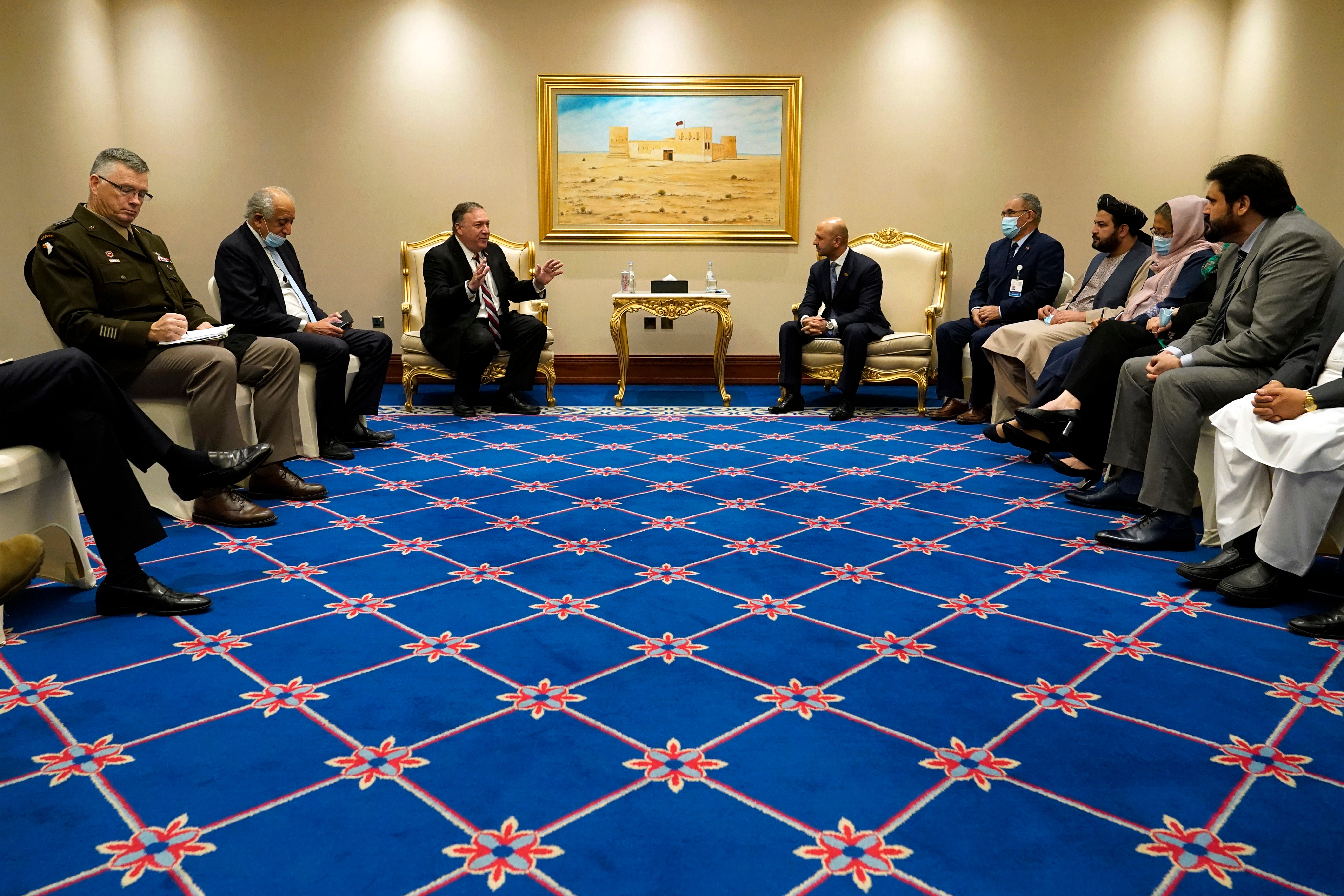New round of Afghan-Taliban peace talks off to a slow start
The latest round of peace talks between the Taliban and Afghan government negotiators that began this week has been off to a slow start

Your support helps us to tell the story
From reproductive rights to climate change to Big Tech, The Independent is on the ground when the story is developing. Whether it's investigating the financials of Elon Musk's pro-Trump PAC or producing our latest documentary, 'The A Word', which shines a light on the American women fighting for reproductive rights, we know how important it is to parse out the facts from the messaging.
At such a critical moment in US history, we need reporters on the ground. Your donation allows us to keep sending journalists to speak to both sides of the story.
The Independent is trusted by Americans across the entire political spectrum. And unlike many other quality news outlets, we choose not to lock Americans out of our reporting and analysis with paywalls. We believe quality journalism should be available to everyone, paid for by those who can afford it.
Your support makes all the difference.The latest round of peace talks between the Taliban and Afghan government negotiators that began this week in Qatar has been off to a slow start as concerns grow over a recent spike in violence across Afghanistan.
The talks, which are taking place in Qatar where the Taliban maintain a political office, resumed on Tuesday but then adjourned until Saturday, in part because the chief Taliban negotiator was in Pakistan
A senior U.S. defense official was also in Pakistan and met the country’s powerful military leadership on Friday. According to a U.S. Embassy statement, the meeting between the military and acting Assistant Secretary of Defense for Indo-Pacific Security Affairs David Helvey affirmed an urgent need for a reduction in violence in Afghanistan.
Both sides “discussed the urgency of reducing violence and restarting meaningful negotiations between the Islamic Republic negotiators and the Taliban,” said the statement.
Helvey also told Pakistan's Chief of the General Staff Lt.-Gen. Sahir Shamshad Mirza that Washington was committed “to a long-term, mutually beneficial security partnership with Pakistan” and wanted to strengthen cooperation on counterterrorism, the statement added.
Pakistan wields significant influence over the Taliban and has been key in getting them to the negotiating table. Islamabad has repeatedly called for a reduction in violence, but has also said the fighting must be reduced from the Afghan government side as well.
Mullah Abdul Ghani Baradar, the Taliban leader who negotiated a U.S.-Taliban deal struck last February, and the chief Taliban negotiator Mullah Hakim were in Pakistan until Wednesday, though little is known of their activities here. The Taliban leadership council is headquartered in Pakistan's southeastern city of Quetta.
U.S. peace envoy Zalmay Khalilzad has warned both sides against squandering the opportunity at peace and has been pressing for a reduction in violence that would lead to a cease-fire.
According to one Taliban official, who spoke on condition of anonymity because he was not authorized to speak to the media, said the Taliban don't trust the Afghan government. Taliban spokesman Mohammad Naeem appeared to rule out an immediate cease-fire.
Naeem told The Associated Press on Friday the agenda of the talks in Qatar has yet to be finalized. “There is no specific time as to when the issue of a cease-fire will be decided," he said.
Analysts say that while the government prioritizes a cease-fire, the Taliban want to know what a post-war Afghanistan would look like, as well as a power-sharing arrangement. The peace talks are supposed the set a roadmap for a post-war Afghanistan in which the Taliban would have a political role.
However, Afghan President Ashraf Ghani this week ruled out an interim government with the Taliban, according to Afghan media reports. Ghani also did not meet with Khalilzad during his visit to Kabul this week.
“The benefit of a coalition governance structure, which includes the Taliban is that they can continue the negotiations from within the power structure for the overhaul of the legislative, executive and judiciary pillars of the country,” said Torek Farhadi, a former adviser to the government and political analyst.